50+ Sample Conference Session Proposal
-
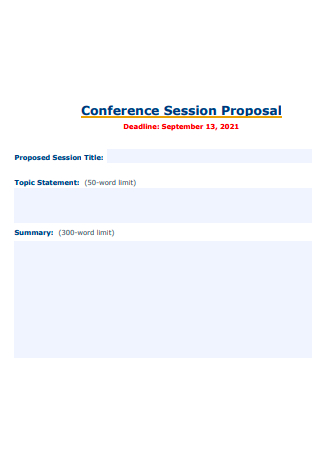
Conference Session Proposal Template
download now -
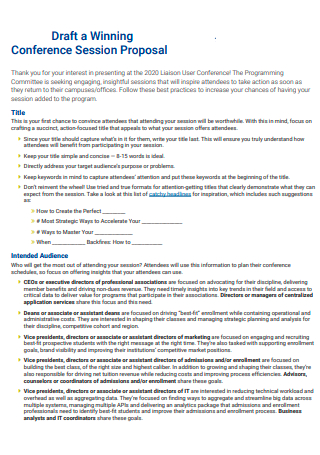
Draft Conference Session Proposal
download now -
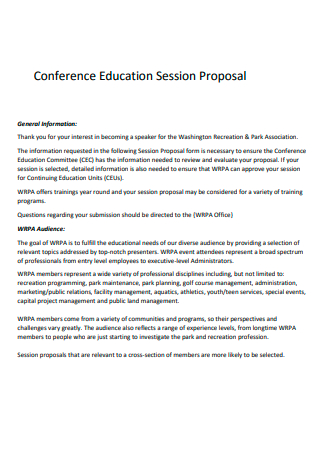
Conference Education Session Proposal
download now -
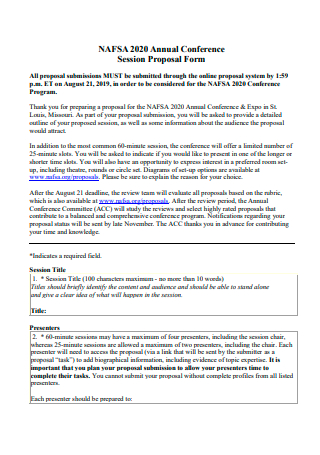
Annual Conference Session Proposal Form
download now -
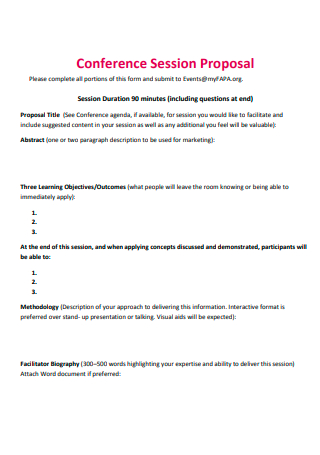
Formal Conference Session Proposal
download now -
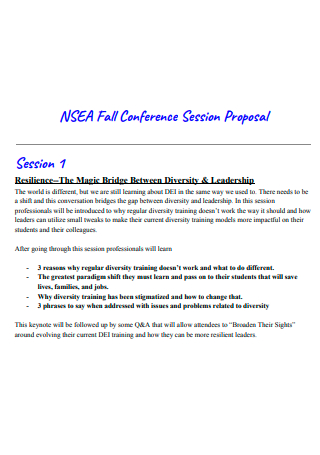
Conference Session Proposal Example
download now -
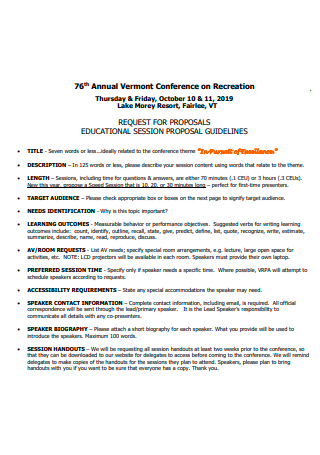
Conference on Recreation Educational Session Proposal
download now -
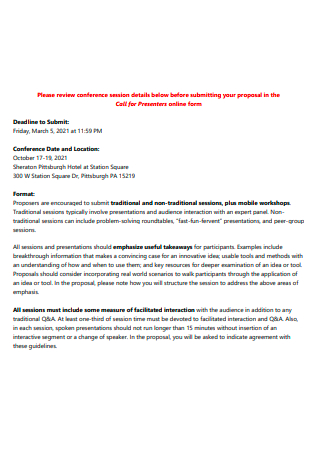
Conference Session Proposal Format
download now -
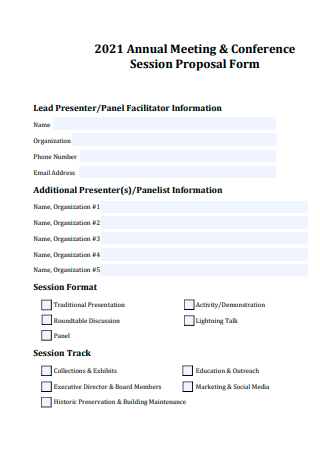
Annual Meeting and Conference Session Proposal Form
download now -
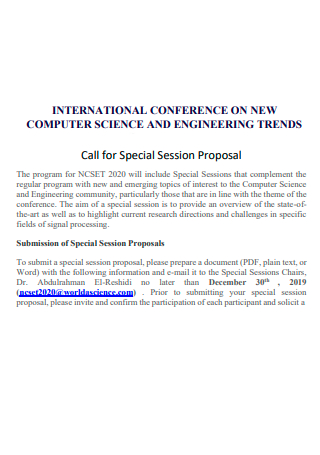
International Conference Call For Special Session Proposal
download now -
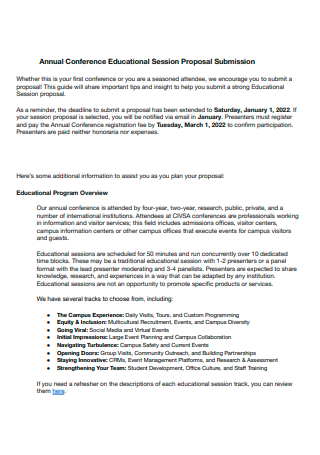
Annual Conference Educational Session Proposal Submission
download now -
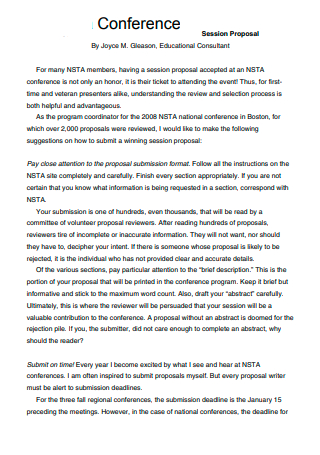
Printable Conference Session Proposal
download now -
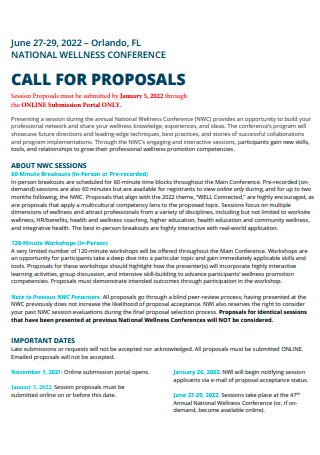
National Conference Session Proposal
download now -
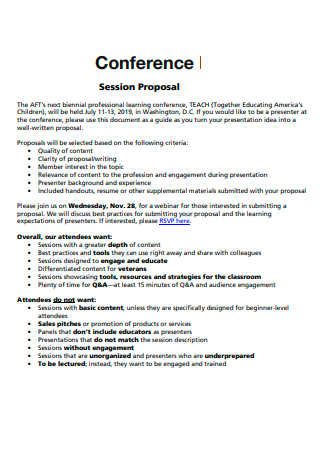
Conference Session Proposal in PDF
download now -
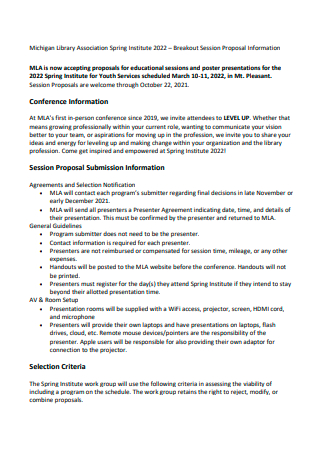
Conference Information Breakout Session Proposal
download now -
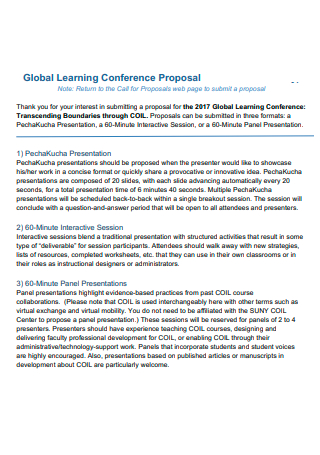
Global Learning Conference Session Proposal
download now -
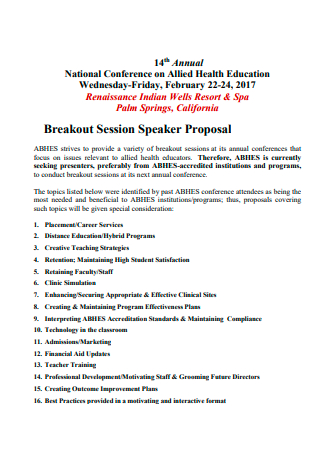
National Conference Breakout Session Speaker Proposal
download now -
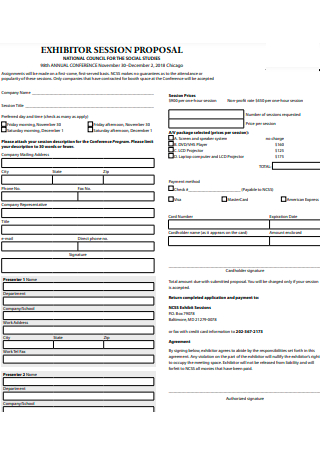
Conference Exhibitor Session Proposal
download now -
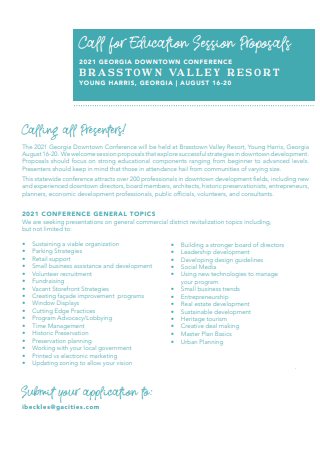
Conference Call For Education Session Proposal
download now -
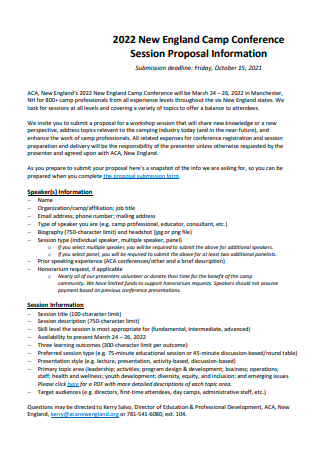
Camp Conference Session Proposal
download now -
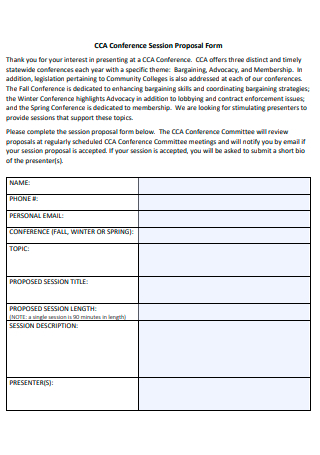
Conference Session Proposal Form
download now -
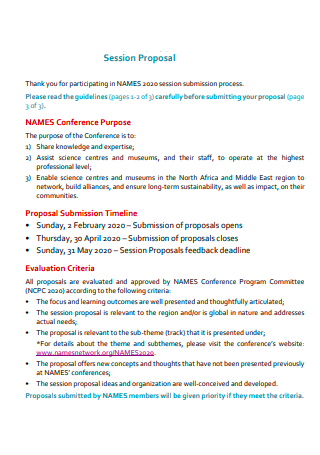
Simple Conference Session Proposal
download now -
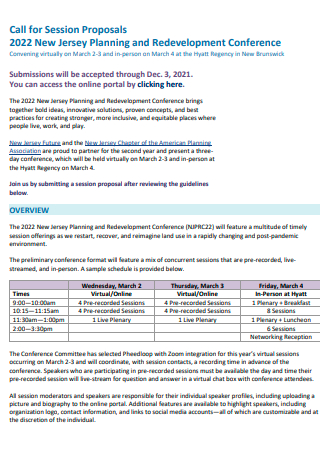
New Planning and Redevelopment Conference Session Proposal
download now -
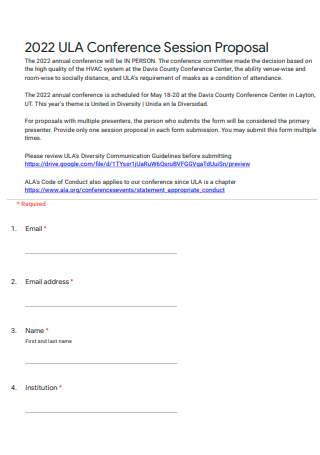
Sample Conference Session Proposal
download now -
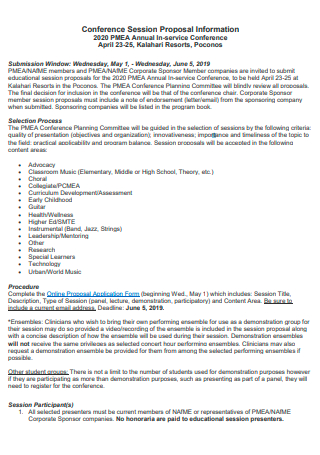
Conference Session Proposal Information
download now -
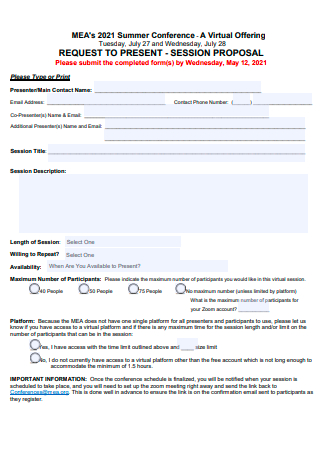
Summer Conference Session Proposal
download now -
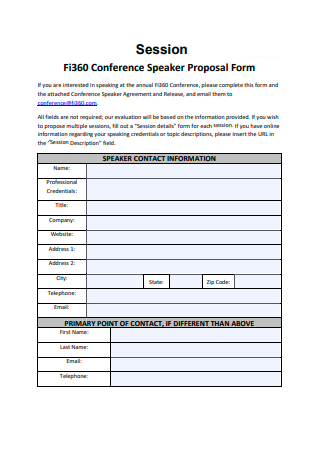
Conference Session Speaker Proposal Form
download now -
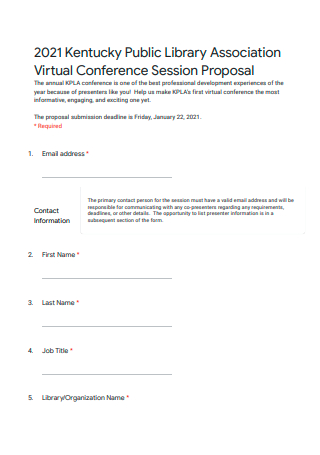
Viual Conference Session Proposal
download now -
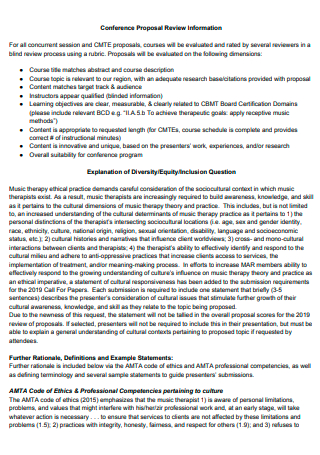
Conference Session Proposal Review
download now -
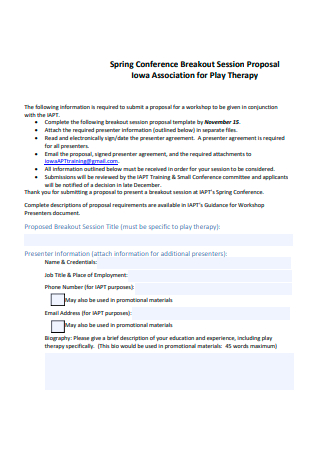
Conference Breakout Session Proposal
download now -
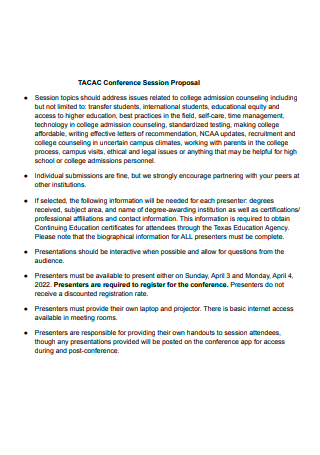
Standard Conference Session Proposal
download now -
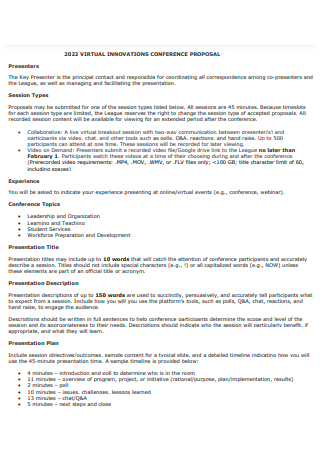
Virtual Innovations Conference Session Proposal
download now -
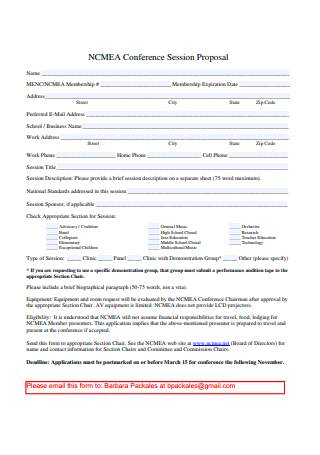
Basic Conference Session Proposal
download now -
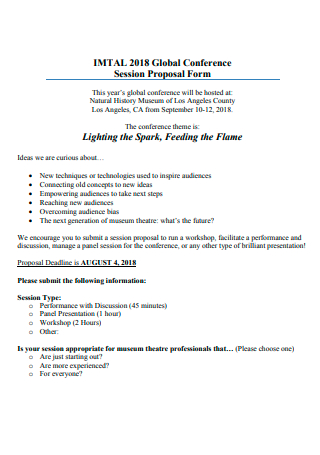
Global Conference Session Proposal Form
download now -
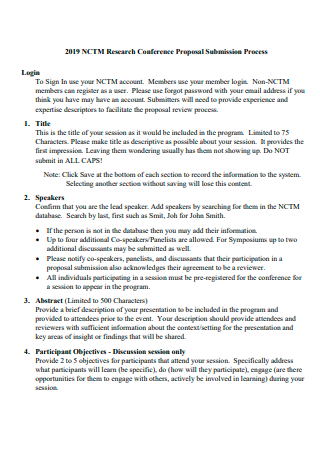
Research Conference Session Proposal Submission Process
download now -
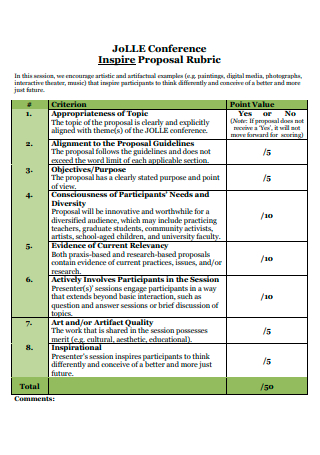
Conference Session Inspire Proposal
download now -
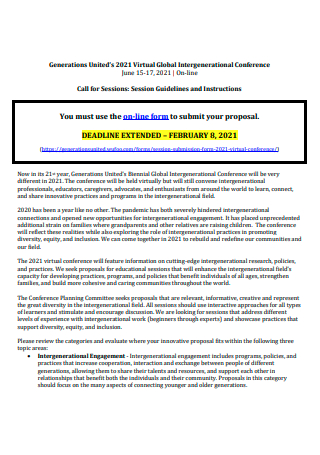
Virtual Global Intergenerational Conference Session Proposal
download now -
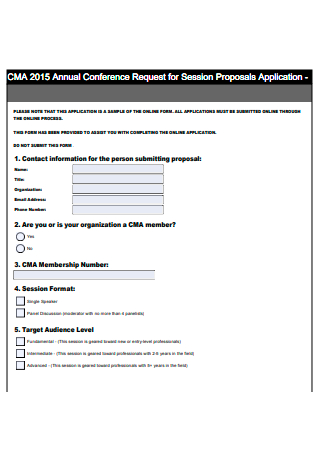
Annual Conference Request For Session Proposal Application
download now -
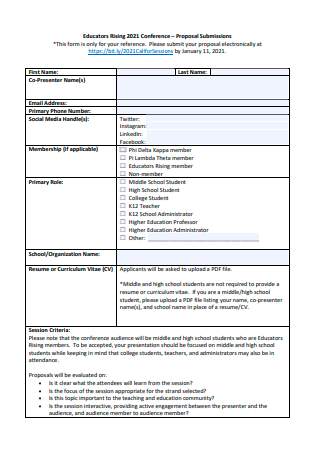
Educators Rising Conference Session Proposal
download now -
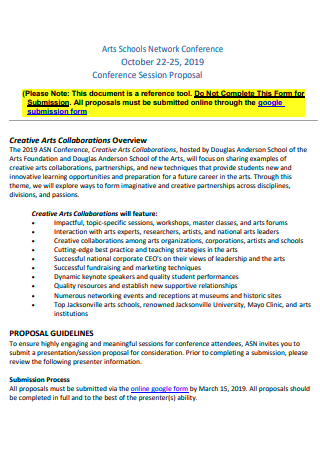
Arts Schools Network Conference Session Proposal
download now -
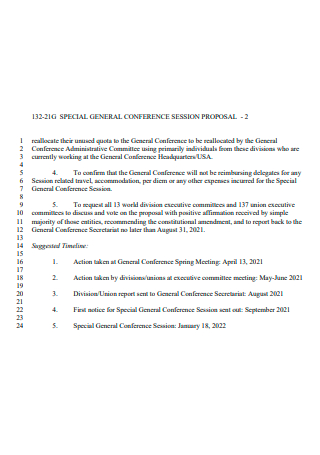
Special General Conference Session Proposal
download now -
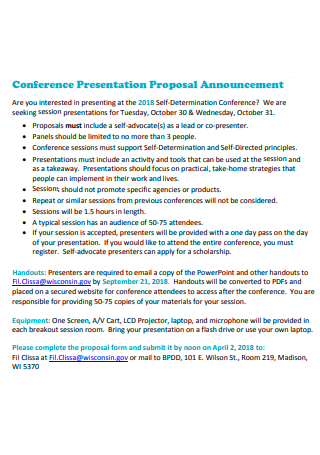
Conference Session Presentation Proposal
download now -
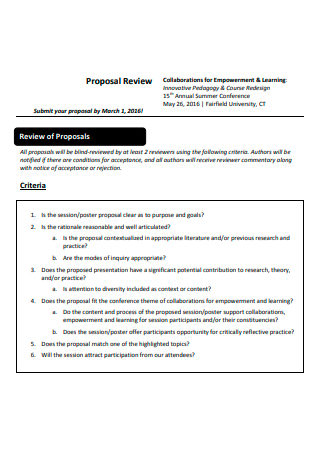
Annual Summer Conference Session Proposal Review
download now -
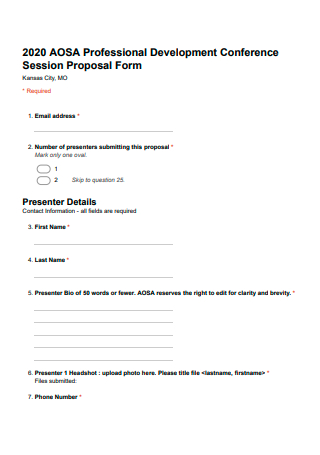
Professional Development Conference Session Proposal Form
download now -
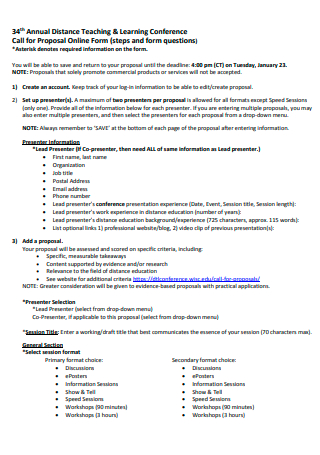
Teaching and Learning Conference Session Proposal
download now -
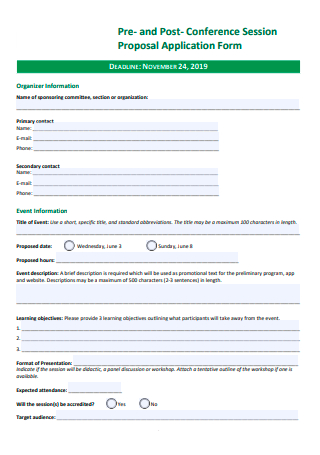
Pre and Post Conference Session Proposal Application Form
download now -
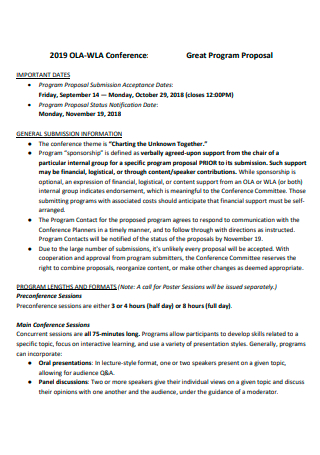
Conference Session Great Program Proposal
download now -
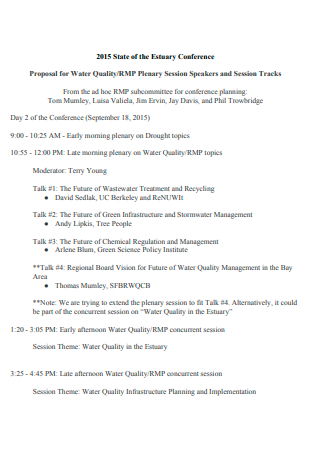
Conference Session Speakers and Tracks Proposal
download now -
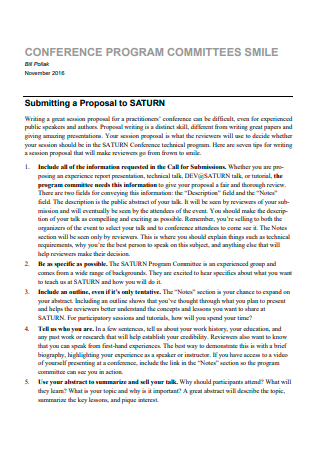
Conference Program Committees Session Proposal
download now -
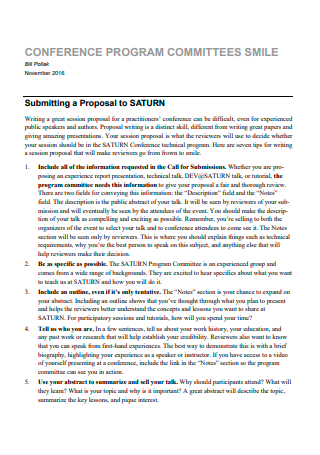
Conference Program Committees Session Proposal
download now -
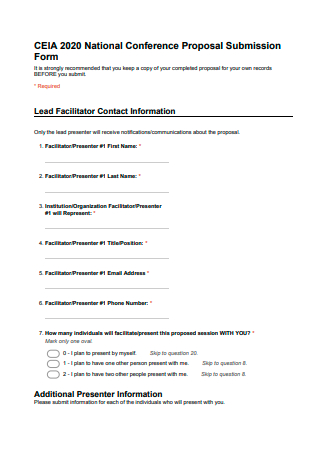
National Conference Session Proposal Submission Form
download now
FREE Conference Session Proposal s to Download
50+ Sample Conference Session Proposal
What Is a Conference Session Proposal?
Tips For Hosting a Conference Session
What To Expect at Conferences
How to Create a Conference Session Proposal
FAQs
How do you write a conference session proposal?
What is a proposal for a conference?
How do you write a presentation proposal?
What Is a Conference Session Proposal?
A conference session proposal is a formal proposal that outlines a conference event and its schedule of activities, among other components. The proposal can cover a wide range of conference topics from education to economics to health.
According to an article by Finances Online, web conferencing was already widely practiced even before the COVID-19 pandemic. The pandemic did, however, dramatically change the virtual landscape of web conferences and online meetings. The American company Zoom witnessed astonishing revenue growth in just a couple of years. The video conferencing platform earned roughly $121 million in 2018. When the global health crisis hit in early 2020, the company had revenue sales of close to $623 million by the end of the year.
Tips For Hosting a Conference Session
A conference session falls under MICE (Meetings, Incentives, Conferences, and Exhibitions) in the events industry. Sessions can either be intimate gatherings or big-scale sponsored events, and organizing one can be quite challenging. The examples below are some practical tips for anyone who plans to propose or hold a conference session.
What To Expect at Conferences
When it comes to conferences and similar events, there can be all kinds of conferences. Most tend to follow a certain template, and yet others are more creative than most in some cases. Still, the program or itinerary would depend on the topic of the conference and what methods or resources are suited for the topic. The following examples are just some of the most common activities to be expected at conferences.
How to Create a Conference Session Proposal
To create a comprehensive conference session proposal, you need to determine what kind of conference you want to present. If it is convenience and efficiency you are looking for, try using a predesigned template. It will save you more time and you don’t need to start from scratch. Once you’ve decided what type of conference to hold, follow the basic instructions below.
Step 1: Determine the Objectives
The first step in creating a conference session proposal is establishing the objectives. What is your main goal in organizing this conference? What do you want participants to take away from the session? These are the types of questions that you should be asking when drafting this section of your proposal. Whether it is to educate people on a certain subject or to deepen participants’ appreciation and understanding for a particular advocacy, your objectives must be descriptive, clear, and attainable. Try to keep it to a minimum and avoid listing too many objectives. The goal is to keep focus and not spread yourself too thin.
Step 2: Provide Sufficient Background
Since it is a formal proposal, you would need supporting ideas that can back up your goals and plans. Whatever the conference is centered on, make sure to give the reader a backstory on why it is important for such an event to be held. Or at the very least, offer a little history as to the preparations and circumstances that led to the conception of the event. And depending on the type of conference, you can even provide some background on the speakers, material, or expectations of the conference session.
Step 3: Prepare a Program Itinerary
A key component of a formal conference is the program. Make sure to include a detailed list of activities and their corresponding schedule in your proposal. Since a conference is an event, people and participants will expect to do what is required. Having a solid program or template to follow is crucial for a well-organized and smooth-sailing conference. For this section, try to be as detailed and specific as possible. Include all the key details such as the date, time, location, and the title of the activity. One option is to create an itinerary program using a table or chart to make it more organized.
Step 4: Employ an Assessment Tool
A conference session may wrap up on the final day of the event but that does not mean the learning stops. A conference is still an event, so it must be subject to scrutiny and evaluation. There ought to be success indicators in place to rate a conference’s positive and negative impacts. Post-event processing is key for continuous learning and improvement. Therefore, your proposal must be forward-thinking enough to have a tangible measuring tool or rubric that will enable you to assess the impact of the conference.
FAQs
How do you write a conference session proposal?
To write a conference session proposal, you need to establish objectives, a background on the conference, a detailed program, strategies and other concrete plans (e.g., budget, etc.). Refer to the instruction guide above for more details on how to create a conference session proposal.
What is a proposal for a conference?
It is basically a written sales pitch for a conference event. It proposes activities and programs with the aim of realizing a common goal in the form of a conference.
How do you write a presentation proposal?
Preparation is key. Do your research and anticipate questions from the panelists or audience. Create an engaging and visually appealing presentation. If it helps, you can prepare an outline or summary notes to hand out to your audience prior or after your presentation.
A conference is a great opportunity to learn and exchange ideas with new people. For presenters, resource persons or conference organizers, there is a lot of preparation and planning that goes into it. Browse the wide selection of sample conference proposals above and create your own proposal today!
